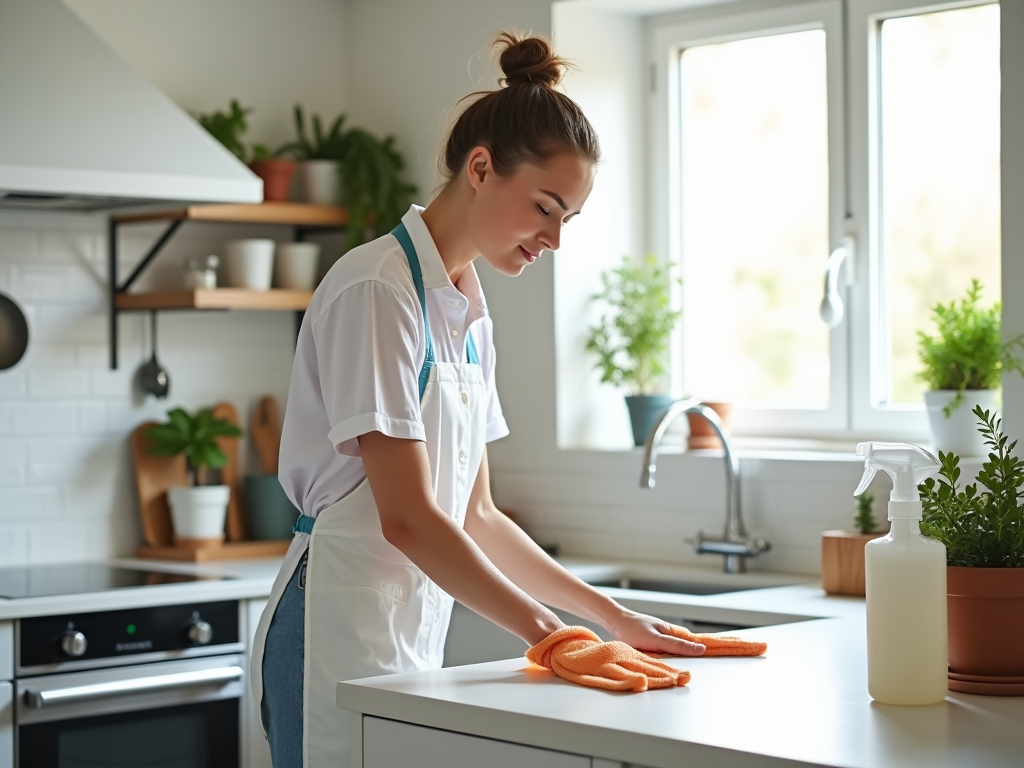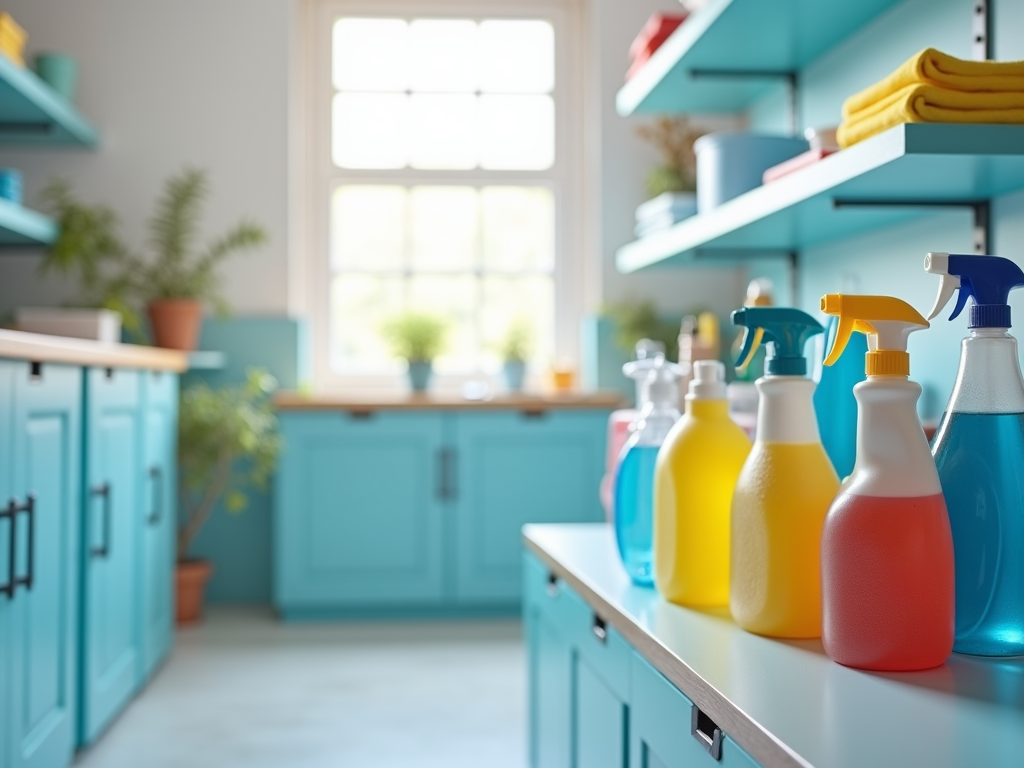5 Cleaning Mistakes Professional Cleaners Would Never Make

Have you ever wondered how professional cleaners achieve that immaculate look that seems so elusive in our everyday cleaning efforts? The truth is, there are common practices that individuals follow which can actually sabotage the entire cleaning process. When you step into the shoes of a professional cleaner, you realize that success lies in the details focused on methods, tools, and routines. By identifying and avoiding these 5 crucial mistakes, you can elevate your cleaning game and create a space that feels fresh, organized, and inviting. Understanding these faux pas could not only save you time but also enhance the longevity of your belongings and the overall safety of your environment.
Cleaning might seem straightforward, yet the nuances of effective techniques can make all the difference between a mediocre and a stellar clean. To get started on your journey to achieving professional-level cleanliness, it’s essential to first understand the importance of adopting proper cleaning techniques. Implementing these practices will lead to results that truly shine, providing satisfaction that money cannot buy.
Understanding the Importance of Professional Cleaning Techniques

Many of us approach cleaning with a mindset of simply wiping away visible dirt. However, understanding the importance of professional techniques can help avoid a variety of mishaps. Professionals bring years of experience that shape these methods, ensuring efficiency while safeguarding surfaces from potential damage. Consider how they’re able to clean in a way that avoids streaks, preserves the finish of furnishings, and eliminates hidden allergens. Adopting such techniques can not only enhance your cleaning abilities but also contribute to a healthier living environment.
Using the Wrong Cleaning Products

One major pitfall to avoid is using the wrong cleaning products for specific surfaces or materials. While it might seem harmless, this mistake often leads to damage, ineffective cleaning, and can even create safety hazards. For instance, using an abrasive cleaner on a delicate countertop can result in scratches. Conversely, employing a product that isn’t designed for removing grease on kitchen surfaces may leave sticky residues behind. Therefore, professional cleaners thoroughly assess products based on compatibility and the expected outcome.
Understanding product specifications helps prevent damaging furniture and surfaces while achieving the desired cleaning effect. It’s important to consult labels and even research to ensure you’re using a product appropriate for its intended use. Here are a few key items professionals always have on hand:
- pH-neutral cleaners for finished wood
- Microfiber cloths for dusting
- Baking soda and vinegar for natural cleaning solutions
Skipping the Preparation Phase
Preparation can make or break your cleaning day, yet many individuals rush into the task without proper setup. Failing to prepare means potential disruptions during the cleaning process, like stopping to find tools or losing time decluttering. Professionals, however, prioritize this phase to maximize efficiency. By taking time to evaluate the area to be cleaned, they create an organized plan of action. This preparation promotes a smooth-flowing routine and allows for surprise obstacles, like pet messes or sudden spills to be managed effectively.
Before diving into cleaning, there are essential steps that professionals always take:
- Declutter the area to make surfaces accessible.
- Gather all necessary tools and products.
- Assess the cleaning area and devise a strategy.
Neglecting to Follow Proper Techniques
Another crucial mistake is neglecting to follow proper techniques. Without the right methods, cleaning efforts can yield unsatisfactory results. For example, simply wiping down surfaces without a systematic approach can lead to dust being transferred to other areas rather than eliminated. Effective cleaning techniques that professionals emphasize include the correct order of operations, proper scrubbing motions, and strategic dusting routines. These techniques can drastically improve the overall results and efficiency of your cleaning tasks.
To ensure that your cleaning is as effective as possible, consider implementing the following techniques:
- Start from the top and work your way down to minimize dust falling on cleaned areas.
- Use separate cloths for different areas (kitchen, bathroom, etc.) to prevent cross-contamination.
- Employ a spray-and-wipe method rather than soaking surfaces to avoid damage.
| Surface Type | Recommended Cleaner | Cleaning Frequency |
|---|---|---|
| Wood Floors | pH-neutral cleaner | Monthly |
| Glass | Glass cleaner | Biweekly |
| Granite Countertops | pH-balanced cleaner | Weekly |
Overlooking Consistency in Cleaning Routines
Consistency is crucial in maintaining cleanliness. Overlooking this aspect leads to an accumulation of dirt, dust, and grime, turning what could have been a simple cleaning job into a labor-intensive project. Professional cleaners understand that periodic maintenance is key. By adhering to a well-organized cleaning schedule that addresses frequency and task requirements, they can manage both time and effort effectively. Consider how neglecting regular upkeep often results in surface wear and damage over time.
Establishing a cleaning schedule leads to several benefits:
- Reduces the need for deep cleaning sessions.
- Minimizes the buildup of allergens and other contaminants.
- Fosters a more organized and inviting living environment.
Conclusion
Avoiding these common cleaning mistakes can significantly elevate your cleaning efforts. By understanding the importance of proper techniques, selecting appropriate products, preparing effectively, and maintaining a consistent routine, you’re on your way to achieving results comparable to professional cleaners. It’s about implementation and education; knowing what professionals do can help you avoid pitfalls and create a clean, safe haven for family and friends.
Frequently Asked Questions
- What cleaning products do professionals recommend using?
Professionals typically recommend using pH-neutral, eco-friendly cleaners suitable for specific surfaces. - How often should I clean my home?
A regular schedule of weekly cleanings for common areas and monthly deep cleans is advisable. - What are the most overlooked areas when cleaning?
Many people neglect baseboards, light fixtures, and behind appliances during routine cleanings. - Can I use a single product for all surfaces?
No, it’s important to use products formulated for specific materials to avoid damage. - What is the best way to declutter before cleaning?
Start by categorizing items into keep, toss, and donate, then allocate time for each area of your home.


